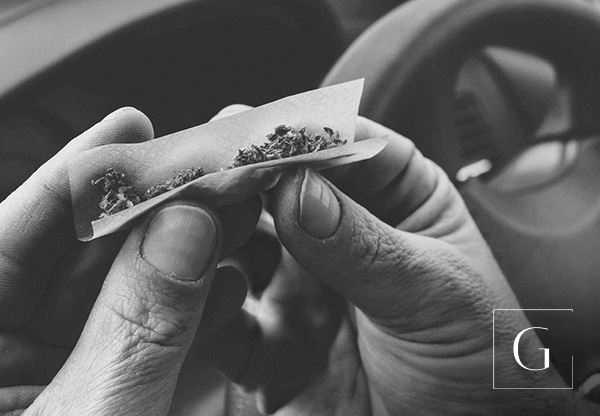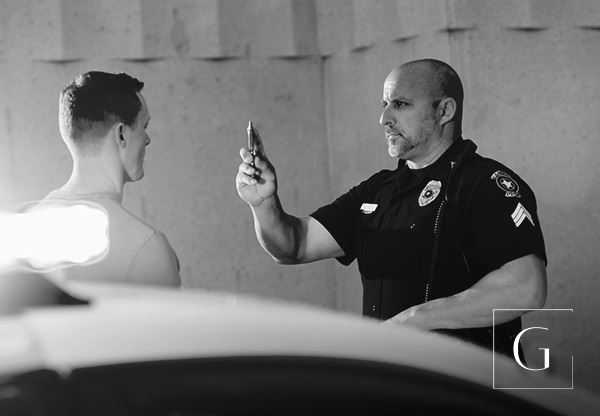It’s important to find a Huntington Beach criminal defense attorney you feel you can trust. You also want your attorney to be compassionate and ready to fight for you and your best interests. Talking to friends and family can help you get a good attorney, and you can also search online or through the local bar association. Find a defense lawyer with relevant experience to your specific situation, and check previous client testimonials to see the impact an attorney has had.
Criminal Defense Attorney In Huntington Beach, CA
If you’ve been charged with a crime in Huntington Beach, you are likely going through a lot of stress. Whether you need a violent crime defense, drug crime defense, sex crime defense or are facing a DUI in Huntington Beach, you need a strong and experienced criminal defense attorney to defend yourself to the best of your ability. No matter the size of the case, any conviction carries negative consequences. Without a proper defense, you are significantly more vulnerable to conviction, which leads to punishments such as incarceration, fines, and a criminal record that you must live with. Without a strong criminal defense case, your entire future could be altered.
You need a qualified and compassionate Huntington Beach criminal attorney to help you through this hard process and work toward the best end outcome — with the least amount of damages done to you, your freedoms, and your reputation.
By choosing the Law Office of Jacqueline Goodman, you are choosing an attorney whose goal is to protect you and your best interests as thoroughly as possible. We have over 20 years of criminal defense experience, with a record of success as a certified criminal law specialist. Let our office stand with you and protect you against conviction.
Preparing Your defense
If you’ve been charged or expect to be charged with a crime in Huntington Beach, CA, you must find a professional and intensely qualified defense lawyer. Protect yourself and your future by contacting the Law Office of Jacqueline Goodman today for a compassionate and strong defense that gives you your best chance of a positive outcome.
FACING CRIMINAL CHARGES?
Attorney Goodman handles a wide variety of criminal cases and accused crimes. Don’t see your charges below? Contact us for a consultation.
HUNTINGTON BEACH, CA ARREST PROCEDURE
In Huntington Beach, California, the process from you being arrested to getting to court is a lengthy one. It’s helpful to know what it looks like to better feel in control of the procedure and what to expect.
- Arrest – After being arrested, the defendant is either released if they post bail or if the prosecutor does not file charges. If these do not happen, the defendant remains in jail until arraignment.
- Arraignment – This is the first time the defendant appears in court. They get familiar with the judge and prosecution. They are also told the charges, their constitutional rights, and their right to a public defender if they are unable to pay an attorney. This is where the defendant enters a plea: no contest, not guilty, or guilty. Not guilty means the defendant claims they did not commit the crime. This could be a strategy to force a trial and ensure the prosecution has proven the crime beyond a reasonable doubt at trial. Guilty is an admission of the crime. From there, the judge enters the conviction. No contest says that the defendant doesn’t disagree with the charge. This is almost the same as a guilty plea, but the plea can’t usually be used against the defendant. This process is made better with a defense attorney who understands the ramifications of the options presented to you and can help you make the best decision possible.
- Bail – Bail is set during the arraignment. The amount is based on the seriousness of the crime and on your level of flight risk. Bail ensures your commitment to a future court date.
- Post-Arraignment and Pre-Trial Conference – During this time, your attorney will navigate meetings to exchange information between the prosecutor, your attorney, the judge, and you. This discussion attempts to find a solution other than continuing to trial. This could include a plea bargain, where the charges would be lowered if you plead guilty. This conference is also a time when a case may be dropped.
- Trial – Going to trial will mean you will face either a jury or a judge. A court trial is in the presence of a judge, and a jury trial is in the presence of a jury. Every defendant has a choice concerning whether they will face a judge or jury. The choice to have your case come before a jury depends on the circumstances and whether you want your guilt decided by your peers based on the evidence. Defendants in this case should turn to the expertise of their defense lawyer. In either case, the defendant is legally innocent until proven guilty, and the prosecutor must prove guilt beyond a reasonable doubt.
- Sentencing – At the end of the trial, you will receive a verdict. A defendant who is found not guilty, or is acquitted, receives no punishment and is released. They can also never be tried for the same crime again. Not guilty doesn’t equal innocence. It only means there was not enough evidence to find the defendant guilty beyond a reasonable doubt. A defendant who is found guilty will have their sentence announced by the judge. Their punishment may be jail time, fines, or community service.
- Appeals – If you’re found guilty and are unhappy with the sentencing you’re receiving, you have the right to appeal the decision. Be sure to check with your attorney if the process is worthwhile. For your case to be accepted in the appeals court, your attorney must bring forward evidence that wasn’t in your first trial or have proof of legal error. There are also deadlines to be aware of when filing appeals, depending on if it is a misdemeanor case or a felony case. An appeals court will likely not review your case if you miss the deadline.
Thank you, Jacqueline Goodman!! I appreciate everything your law office has done to support in this case. Grateful for finally able to see a date, he will be able to return home.
- Anonymous
If you value your life, reputation and your future you must hire Atty Jacqueline Goodman. Just when i thought i had no options but to go to jail and get a conviction, Atty Goodman showed me otherwise and gave me a second chance and got me diversion with no conviction; she gave me my life back. She will fight for…
- Jmario S.
It is with tremendous thanks and a grateful heart that we let you know how much we appreciated your expertise, advice and phone calls on [client's name] behalf. You are a person of service and dedication.
- Former client’s parents
I don't know where to start. Honestly, I don't think I could possibly write anything that would come close to describing Mrs. Goodman's Skill as a Lawyer , she truly is remarkable at what she does. Do yourself a favor, if your in a bind, and are looking for a well respected lawyer that can produce results.... Call Jacqueline! I…
- Sharif A.
Ms Goodman and her staff were beyond helpful. I was in an extremely difficult situation that I hadn’t been in before and needed help. I was referred to Jackie and her office who were extremely helpful. Jackie and her team were extremely empathetic and knowledgeable. They were quick to respond, took action, and kept me informed. Thank you Ms Goodman…
- Nick K.
Ms.Goodman has been an amazing and thorough lawyer representing my family. She has shown up to each court date, being prepared and ready to speak to the judge. She has been a great communicator with my family and kept us informed along the way. She is authentic, and will go the long mile on your case. Choose her to represent…
- Elizabeth E.
I needed an appointment with Ms. Jacqueline Goodman and it was urgent. The best part was that she called me back immediately and I did not have to drive an hour to see her. The first meeting is free and she spoke with me for a lengthy time and she made me feel like for the first time in seeking…
- Mary P.
Ms Goodman was excellent an very professional. She took the time to understand our concerns an worries. I had 2 really bad cases facing 10+ years for trafficking, sales, an distribution between the both ... she was able to get me the best deal an walked away with probation an a new look at life. I will always recommend her…
- Joe G.
Ms. Goodman and her team is by far the best in Southern California. I literally had zero hope of getting anything but prison time on my current case and Ms. Goodman somehow got me an interview for probation. I can say it hasn’t been easy and she’s been doing a lot out of love more than any other attorney would…
- Former Client
The court was offering 9 years for 459pc. After retaining her I got the deal I wanted and even better I was free after serving just 2 years. She's an amazing attorney that you can count on.
- Aliya J.
I can't even begin to express how amazing Jacqueline was when I worked with her for a close friend's case. She was always a quick text away, and when we worried she was the vote of confidence we needed to keep going. Her office staff was also SO easy to work with. Her closing statement moved me, the family, and…
- Caleigha C.
Best lawyer! Jacqueline Goodman is an amazing lawyer, she knows her law well. She helped my brother out of a messy situation and she was always easy to contact and gave me all the information that came her way.
- Rosie C.
Jacqueline, was very professional, and knowledgeable. She listened closely, as we discussed my case. I could tell She truly cared about me. I was very pleased the outcome, and would strongly recommend Her. Honest, hard working, and compassion, would describe, Jacquie.
- Dorian C.
Ms. Jacqueline Goodman was a beacon of hope to my daughter at a time when options and hope seemed limited. Her hard work and dedication was an outcome of Excellence. Ms. Goodman’s attention to detail and knowledge of laws are truly unsurpassed. Thank you.
- Ralph S.
Jacqueline is the best! If any of my friends or family found themselves in a situation where they needed a Criminal Defense attorney I would highly recommend her. She and her staff are extremely professional and they know their stuff. I can't say enough good things!
- Travis H.
She was carring and attentive, always up front with information. She truly cares about her clients and works diligently to achieve the best possible outcome. My family and I truly admire and respect this amazing and talented lawyer. She is definitely someone you can count on for the best advice and outcome.
- Chip E.
Great attorney to work with. She's a boss and has some serious attorney swagger. When I walked into the court room with her, everybody stopped and starred. I felt like I was getting represented by a superstar attorney. She'll run circles around any DA.
- Marcus W.
CRIMINAL LAWS FAQ'S
Huntington Beach, CA

CALIFORNIA CRIMINAL LAW
California law categorizes a wide array of illegal activities as punishable by incarceration or fines, such as theft, DUI, or assault. When facing criminal charges, your case will be categorized as one of the following:
- Misdemeanors – Misdemeanors can carry a punishment of anywhere up to one year in prison and a fine of $1,000 or more. They include trespassing, shoplifting, public intoxication, drug possession, and DUI with no injury.
- Felonies – A felony is generally more significant or more violent than a misdemeanor. Felonies can carry punishments of a year in prison and fines up to $10,000. They include certain DUI cases, domestic violence, assault, and homicide cases of manslaughter or murder. A felony can also include aggravating factors such as fraud, criminal history, or the presence of a weapon.
- Infractions – Infractions are petty crimes and don’t include prison time. Often these are traffic violations and result in fines of around $250. They rarely result in a trial. These are the least serious criminal offenses per California law.
- Wobblers – Wobblers refer to crimes that could be in multiple categories. Often, they are misdemeanors that can be elevated to the status of a felony if circumstances were serious enough. Inclusion of weapons, past criminal history, or sex-related crimes can make a misdemeanor become a felony. Wobblers include assaulting someone with a deadly weapon, DUI, domestic violence, domestic abuse, child endangerment, vandalism, grand theft, embezzlement, sex crimes, forgery, or burglary.
It’s important to know where your offense could fall, as it can help you understand the potential sentencing you could face. In any situation, but especially life-altering ones, you want to contact a Huntington Beach criminal lawyer. A skilled defense attorney can vastly improve your chances of fighting conviction, and they can help you work through your options relating to your case.




